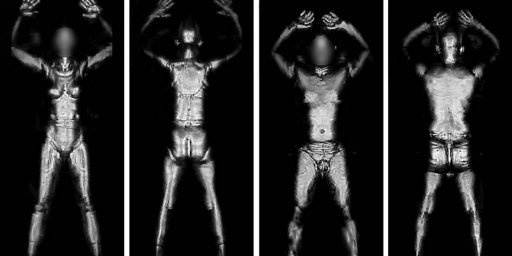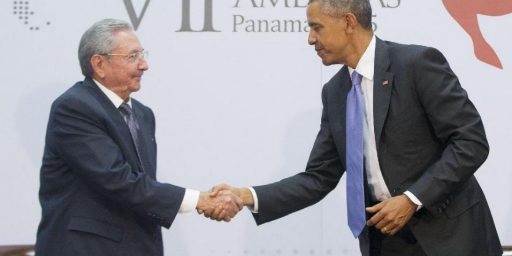Chile Still Divided over Pinochet Legacy
A recent situation illustrates, via the BBC: Chilean police clash with anti-Pinochet demonstrators
Hundreds of Chilean demonstrators have clashed with the police after the screening of a documentary praising the former military government of General Augusto Pinochet.
Pablo Zalaquett, mayor of the capital, Santiago, said police were attacked in several areas of the city centre and there was extensive damage to property.
Police used tear gas and water cannon to break up the demonstration.
Gen Pinochet came to power in a coup in 1973, ruling until 1990.
The film’s screening has pitted supporters of the late general, who claim the right to free speech, against relatives of victims of his regime, who are outraged at the tone of the documentary.
The mayor said hundreds of anti-Pinochet demonstrators organised in groups continued to launch “coordinated attacks” in the centre of Santiago hours after the screening at the Caupolican theatre.
“As I said before, I would prefer the event not to have taken place because we all knew what was going to happen,” Mr Zalaquett told CNN.
There remains some very strong feeling, both in favor and in opposition, to Pinochet and his legacy. While I do not* condone rioting, I am sympathetic to the anti-Pinochet sentiments. I am not a fan of persons who betray their office, overthrow democratically elected governments, and oversee the murder of thousands of citizens.
Some of my previous writings on Pinochet:
- On Pinochet
- Goldberg on Pinochet
- Steyn on Pinochet
- A Correct Assessment of Pinochet from an American Conservative Publication (Finally!)
*Correction: I originally left out a rather important “not.”






I don’t want to put words in your mouth, but I suspect you might not mean “I do condone rioting” — it seems a little out of character for you.
I, however, do condone rioting. At least in cases where someone is trying to whitewash the history of a murderous dictator. If you promote revisionist propaganda, you get your theater windows smashed, and a national spotlight put on you. Yeah, yamaha, free speech, blah blah blah, but these are fascists, and I won’t weep for them. It’s like illinios nazis. Or LaRouchebags. The h.ll with ’em, there are too many real problems in the world to worry about. They piss people off, they deserve what they get.
I do not condone rioting in the case of sports teams winning or losing.
“While I do condone rioting…”
Steve, I think you probably want to fix that. 🙂
Unfortunately, the fact they responded to a movie with riots suggests that their problem with Pinochet lies only with his goals rather than his means for achieving them.
@Stormy Dragon:
A false equivalence in both quantity and quality.
@gevin shaw:
For now, but that seems mostly due to a lack of capability (since they do not control the state) on the part of the rioters rather than a lack of desire. They clearly share with Pinochet the belief that the proper way to respond to dissent is to silence it through the threat of violence.
Actually, Pinochet silenced dissent through the reality of violence, with all the advantages of controlling the state like access to the really big bang-bang-toys and prison cells. There is a difference.